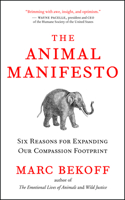The ABC of Relativity
Select Format
Select Condition 
Book Overview
First published in 1925, Bertrand Russell's ABC of Relativity was considered a masterwork of its time, contributing significantly to the mass popularisation of science. Authoritative and accessible, it provides a remarkable introductory guide to Einstein's theory of Relativity for a general readership. One of the most definitive reference guides of its kind, and written by one of the twentieth century's most influential philosophers, ABC of Relativity continues to be as relevant today as it was on first publication. This description may be from another edition of this product.
Format:Paperback
Language:English
ISBN:B000X1QOGA
Release Date:January 1960
Publisher:Mentor
Weight:0.21 lbs.
Dimensions:0.4" x 4.3" x 7.1"
You Might Also Enjoy
Customer Reviews
6 customer ratings | 5 reviews
There are currently no reviews. Be the first to review this work.








































